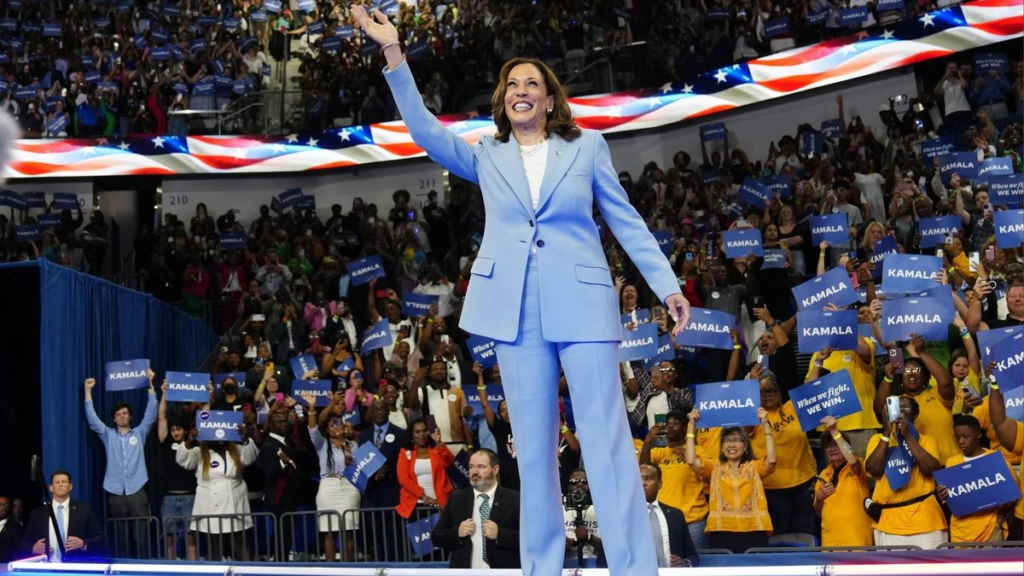Kamala Harris is considered one of the most left-leaning major party candidates for the presidency in the post-World War II era in the United States.

It’s not even close. Independents and moderates from both parties should strongly consider supporting Donald Trump.

Vice President Kamala Harris delivered a carefully crafted acceptance speech last week, notably avoiding any mention of her key policy proposals, such as price controls and a $25,000 grant for first-time homebuyers. She also did not address the criticisms of her 2019 presidential platform, which included abolishing employer-provided health care in favor of “Medicare for All.” While an unnamed staffer has suggested she no longer supports this, Harris herself has remained silent on her current stance on health care.
In the 36 days since becoming the Democratic nominee, Harris has not granted any interviews or answered substantial questions. Her acceptance speech was filled with generic GOP-style rhetoric, diverting attention from her actual record. As a senator, she was once rated the most liberal member of the Senate and promised during her 2019 campaign to shut down illegal immigrant detention centers “on Day 1.”
As Vice President, Harris was tasked by President Biden with managing the migration crisis at the southern border, a responsibility that has seen over 10 million migrants cross since she took on the role—an outcome many view as a failure. Harris, whose political victories have been limited to deep-blue California, has struggled with public perception due to her often-criticized interviews and infamous laugh. Whether she can navigate the challenges ahead, particularly the upcoming debate with former President Trump, remains to be seen.

The Harris campaign has chosen to keep quiet about Kamala Harris’s upbringing in Berkeley, California, and Montreal, Canada. She lived in Berkeley until age 12 before moving to Montreal, where she stayed until heading to Howard University in Washington, D.C. Her time in Montreal, particularly during her high school years at Westmount High School, is rarely discussed by her campaign, and records or details from that period are not readily available.
In her speech, Harris made a controversial statement about the situation in Israel and Gaza, creating a “moral equivalency” by acknowledging the violence from Hamas while simultaneously highlighting the suffering in Gaza due to the conflict. This phrasing has raised concerns among Israel’s supporters, especially those familiar with the positions of her national security advisors, Philip Gordon and Maher Bitar.
The public knows almost everything about Donald Trump, including his presidential record and personal life, with numerous books written about him. In contrast, Kamala Harris remains largely unknown beyond her Senate record, her 2019 presidential campaign, and her role in the Biden administration, particularly on border issues.
The mainstream media seems content with this situation, likely because, like Harris, many in the media are far left of center. This should concern independents and moderates of both parties, who might wonder why a candidate is being so elusive.
Hugh Hewitt, host of “The Hugh Hewitt Show” on the Salem Radio Network, raises these points. Hewitt, a seasoned media figure, law professor, and author, has been a prominent voice in American politics, regularly contributing to discussions on the Constitution, national security, and more. His insights reflect his long-standing career in broadcasting and his deep engagement with political issues.



